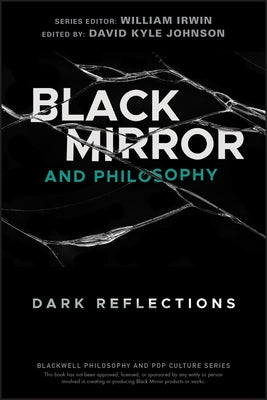Description
A philosophical look at the twisted, high-tech near-future of the sci-fi anthology series Black Mirror, offering a glimpse of the darkest reflections of the human condition in digital technology
Black Mirror―the Emmy-winning Netflix series that holds up a dark, digital mirror of speculative technologies to modern society--shows us a high-tech world where it is all too easy to fall victim to ever-evolving forms of social control.In Black Mirror and Philosophy, original essays written by a diverse group of scholars invite you to peer into the void and explore the philosophical, ethical, and existential dimensions of Charlie Brooker's sinister stories. The collection reflects Black Mirror's anthology structure by pairing a chapter with every episode in the show's five seasons--including an interactive, choose-your-own-adventure analysis of Bandersnatch--and concludes with general essays that explore the series' broader themes. Chapters address questions about artificial intelligence, virtual reality, surveillance, privacy, love, death, criminal behavior, and politics, including:
- Have we given social media too much power over our lives?
- Could heaven really, one day, be a place on Earth?
- Should criminal justice and punishment be crowdsourced?
- What rights should a "cookie" have?
Immersive, engaging, and experimental, Black Mirror and Philosophy navigates the intellectual landscape of Brooker's morality plays for the modern world, where humanity's greatest innovations and darkest instincts collide.
Author: David Kyle Johnson
Publisher: Wiley-Blackwell
Published: 11/26/2019
Pages: 384
Binding Type: Paperback
Weight: 1.15lbs
Size: 8.90h x 6.00w x 0.90d
ISBN13: 9781119578260
ISBN10: 1119578264
BISAC Categories:
- Philosophy | General
About the Author
DAVID KYLE JOHNSON is Professor of Philosophy at King's College in Pennsylvania. He is the editor of four books on popular culture and philosophy, including Inception and Philosophy (Wiley Blackwell, 2011), and has written over 20 articles for academic books and journals. He also produces lecture series for The Teaching Company's "The Great Courses," including Sci-Phi: Science Fiction as Philosophy.

